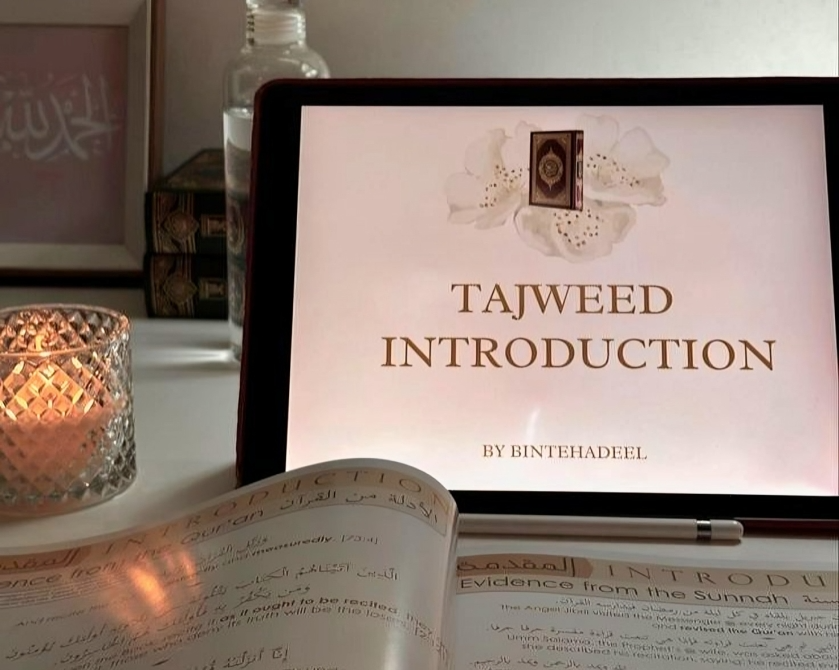Why Learning Tajweed is Essential for Every Muslim
Effective Tips from Alda3ya Academy

Learning Tajweed is more than just a set of pronunciation rules; it’s a spiritual journey that connects the heart to the Quran in a beautiful and respectful way. For every Muslim, learning Tajweed is not only important for correct recitation but also for preserving the sacred message of the Quran as it was revealed to the Prophet Muhammad (peace be upon him).
In this article, we’ll explore what Tajweed is, why it’s so essential, and how you can start learning Tajweed online—no matter your age or background.
What is Tajweed?
literally means “to make better” or “to improve.” When applied to the Quran, it refers to the set of rules that guide how each letter should be pronounced correctly, along with the proper timing and rhythm during recitation.
Tajweed includes rules like:
~Makharij (points of articulation)
~Sifaat (characteristics of letters)
~Ghunna (nasal sounds)
~Madd (elongation)
~Rules of stopping and continuing
~And more….
These details preserve the original sound and message of the Quran, exactly as revealed.
Why is Learning Tajweed Important?
1. Preserving the Words of Allah
The Quran is not just read—it is recited. Incorrect pronunciation can completely change meanings. For example:
The word قل (say) vs. كل (eat) — small difference in letters, big change in meaning.
Tajweed protects the message from distortion, keeping the words of Allah safe and intact.
2. It’s a Right of the Quran
Allah commands in the Quran:
“وَرَتِّلِ الْقُرْآنَ تَرْتِيلًا”
“Recite the Quran with measured recitation” — Surah Al-Muzzammil: 4
This verse clearly encourages proper, slow, and deliberate recitation—Tajweed is how we fulfill that command.
3. Increases Concentration and Spiritual Reflection
When you learn Tajweed, you focus more while reciting. This attention improves khushu’ (humility) and connection with the words, leading to deeper reflection and understanding.
4. Beautifies the Recitation
One of the most beautiful things in Islam is hearing someone recite the Quran with perfect Tajweed. It touches hearts, even of those who don’t speak Arabic. You, too, can recite beautifully when you apply these rules.
5. Fulfilling a Communal Obligation
It is a communal obligation (fard kifayah) for some people in every community to learn and teach Tajweed. By learning it, you’re taking part in preserving Islamic knowledge.
Recitation
Common Mistakes Without Tajweed
~Pronouncing ق as ك
~Mixing up letters like ص and س
~Ignoring ghunna (nasal sounds in rules of noon and meem)
~Improper elongation (like shortening Al-Rahman or over-stretching others)
~check out Common Quran Recitation Mistakes and How to Avoid Them
These mistakes may seem small, but they can affect the meaning or disrupt the flow of recitation.
Can You Learn Tajweed Online? Absolutely!
Thanks to modern technology, learning Tajweed is now easier and more flexible than ever. At alda3ya.com, we offer:
~Live one-on-one classes with experienced teachers
~Courses tailored for kids and adults
~Practice-based learning with corrections and feedback
~Flexible scheduling for busy parents and students
Our professional Tajweed tutors help you build a solid foundation, even if you’re starting from scratch.
Tips to Start Your Tajweed Journey
1. Start with the basics – Focus on the Arabic letters and their correct sounds.
2. Practice consistently – 15–20 minutes a day can make a big difference.
3. Record your recitation – Then compare it to your teacher’s or a trusted reciter.
4. Join a structured course – Having guidance is key to avoiding mistakes.
Learning Tajweed is not just for scholars or imams—it’s for every Muslim who wants to recite the Quran with respect, love, and accuracy. It brings you closer to the words of Allah and helps you recite in the most beautiful and correct way.
Don’t wait. Start your Tajweed journey today with a free trial class at alda3ya.com and experience the beauty of Quran recitation like never before.
